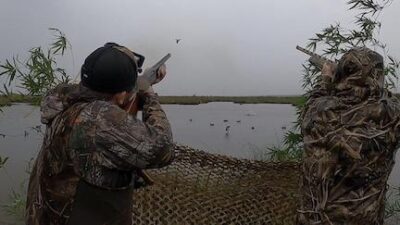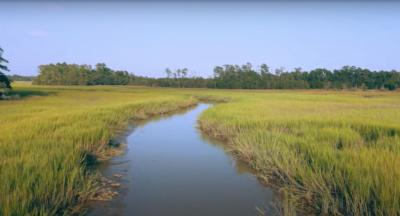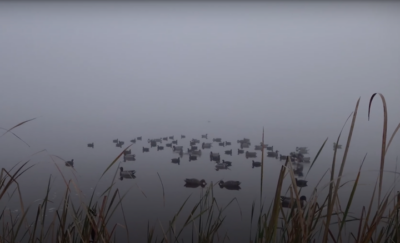Tips to Staying Safe on Your Next Waterfowl Hunt
Keith Lusher 11.03.23

When speaking of boating safety, the first thing that probably comes to mind is how to prepare for a safe fishing trip. After all, the average fishing trip averages five hours which demands the proper precautions to be taken to have a trouble-free trip and also be legal on the water. However, when it comes to duck hunting, you may be letting your guard down when it comes to safety. It’s often the case that duck hunters make long runs before sunrise in less-than-optimal conditions. With duck hunting season cranking up along the Gulf Coast, it’s important to know what the proper regulations are in your state.
Paul Bernard is the the United States Coast Guard and recently joined lifelong duck hunter, Don Dubuc on his radio show, Louisiana Great Outdoors with Don Dubuc on WWL 870 AM, to share a few tips that may help you on your next waterfowl hunt in the marsh.
In addition to checking the regulations for all the items that need to be in your boat during operation to and from the blind, Bernard brought up some good points about preparation. He began with checking the forecast for the day of the hunt.
“It’s very important to check the marine weather forecast because the marine forecast can be substantially different from the regular weather forecast,” he said. “Check the radar both before and during the trip because those frontal systems that blow through can catch you off guard with how fast they roll in.”
In the world of fishing, tides are very important. But not so much in the hunting world right? Bernard said tides may not affect your hunt much but when it’s time to head home, a low tide can leave you high and dry. “Check the tides is your hunting in coastal areas. If you get north and northwest winds combined with a low tide that can leave you stranded. That’s actually our most common call for assistance. Somebody is out there and the weather blows all of the water out the marsh and they’re stranded overnight,” Bernard said.
Duck hunters are probably the earliest to rise in the hunting world. They can find themselves rushing to get to the blind before sun-up. This can easily lead to confusion if your path to the blind isn’t familiar. Bernard recommends a pre-trip to sort out any confusion with deciding on which path to take. “If you have a chance before the trip, go to the blind during a low tide and save those tracks on your electronics, that can help tremendously when getting to the blind safely,” Bernard said. “Leave a float plan and a picture of your boat with somebody that can report you if you don’t make it back by the planned time.”

With the advances in GPS recently, sportsmen are leaning more and more toward pinpoint accuracy when maneuvering on electronic maps. Bernard warned boat operators to not lean solely on the GPS when traveling on the water. “If the conditions are foggy, do not use that GPS as if it’s a radar. You have to slow down the visibility is restricted. When you’re in those tight channels and winding waterways, it’s important to stay to the right of center. The boats that are coming the opposite way are going to most likely be on their right as well and this will prevent a collision,” he said.
Cell phones are a fantastic way to communicate especially in an emergency, but all too often we don’t have a backup plan to deal with the occasion when we can’t use our cell phones. Bernard recommends having a second form of communication in case go an emergency. “Layers of communication are important in the event of an emergency. If you are solely relying on a cell phone and it gets wet, then that’s your only shot at communication. A handheld VHF radio is inexpensive and will help you communicate. I’m big on a “Ditch Kit” which contains everything that you’ll want if you’re ever stranded. These kits contain lights, a lighter, bug spray, survival blankets, multi-tools, and flares,” Bernard said.
 Hunter Orange has been a staple for decades when it comes to keeping hunters from being fired on. But when hunting waterfowl, it serves two purposes. Bright colors like Hunter Orange are easy to spot from overhead in case of rescue. “Whether it’s just a blanket or just a hat, it makes a big difference in a search and rescue mission. We’ve had trouble in the past locating duck hunters in the marsh because of how well they were camouflaged. When we’re flying over miles and miles of marsh, it can be challenging to spot these hunters when their surroundings are the same color as their clothes,” Bernard said.
Hunter Orange has been a staple for decades when it comes to keeping hunters from being fired on. But when hunting waterfowl, it serves two purposes. Bright colors like Hunter Orange are easy to spot from overhead in case of rescue. “Whether it’s just a blanket or just a hat, it makes a big difference in a search and rescue mission. We’ve had trouble in the past locating duck hunters in the marsh because of how well they were camouflaged. When we’re flying over miles and miles of marsh, it can be challenging to spot these hunters when their surroundings are the same color as their clothes,” Bernard said.
To hear the interview in its entirety click here.

